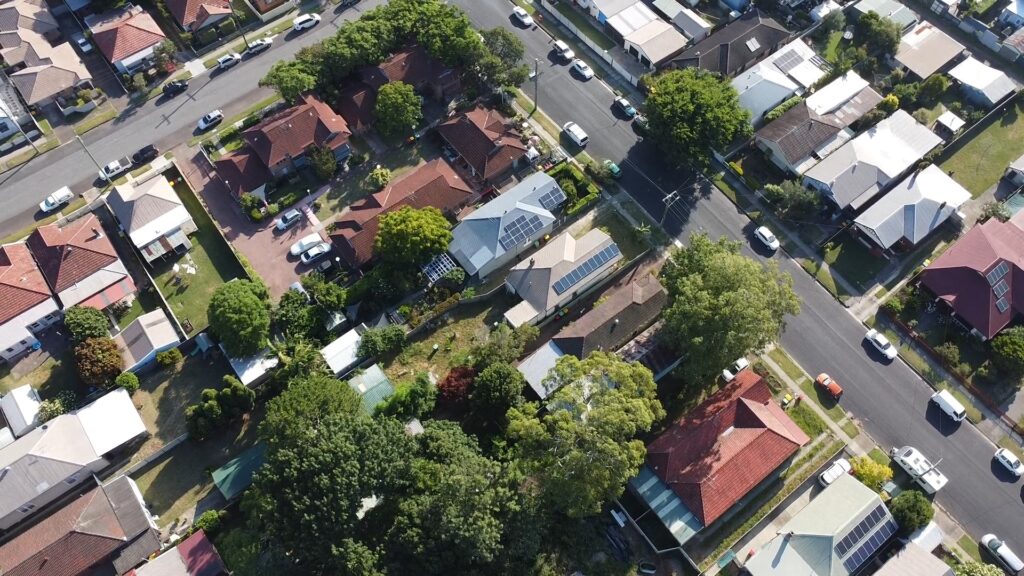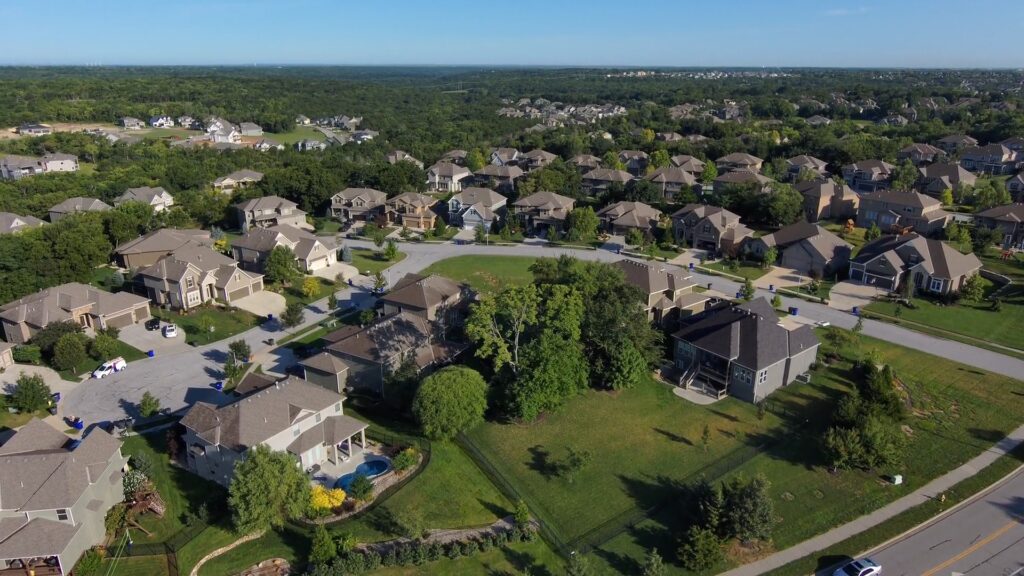Posts in Category: Atlanta Real Estate Market
The Impact of COVID-19 on the Atlanta Real Estate Market: Trends and Adaptations
The COVID-19 pandemic has brought unprecedented challenges to various sectors of the economy, and the real estate market is no exception. In Atlanta, like many other cities, the real estate landscape has undergone significant changes due to the pandemic. In this article, we’ll delve into the impact of COVID-19 on the Atlanta real estate market, explore the trends that have emerged, and discuss the adaptations made by industry players to navigate these uncertain times.
Shift in Buyer Preferences
One of the noticeable trends in the Atlanta real estate market during the pandemic has been a shift in buyer preferences. With remote work becoming more prevalent, many buyers have reevaluated their housing needs. Suburban and outlying areas have seen increased demand as people look for larger homes with more space and outdoor amenities. The desire for properties with home offices, private outdoor areas, and proximity to nature has driven up demand in these suburban areas.
Accelerated Adoption of Virtual Technology
The pandemic accelerated the adoption of virtual technology in the real estate industry. From virtual home tours to online meetings with real estate agents, the use of digital tools became essential to continue business during lockdowns and social distancing measures. This adaptation not only allowed real estate professionals to keep transactions going but also opened up new possibilities for reaching out to potential buyers beyond traditional geographic boundaries.
Impact on Rental Market
The rental market in Atlanta also experienced significant shifts during the pandemic. With job losses and financial uncertainty, some renters faced difficulties paying rent, leading to increased eviction rates. To address these challenges, the government implemented eviction moratoriums and provided financial assistance to renters, impacting the cash flow of property owners.
On the other hand, the rental demand for single-family homes with extra space surged as more people sought out properties that better fit the new work-from-home lifestyle. As a result, rental rates for single-family homes increased while the demand for apartments in city centers declined.
Commercial Real Estate Challenges
The commercial real estate sector faced considerable challenges due to the pandemic. Many businesses shifted to remote work, reducing the demand for office spaces in downtown areas. Retail businesses were hit hard by closures and restrictions, affecting the demand for commercial properties. As businesses adapted to the changing circumstances, they reassessed their office space needs, leading to increased interest in flexible lease arrangements and coworking spaces.
Mortgage Rates and Affordability
The pandemic had a significant impact on mortgage rates. In response to economic uncertainties, the Federal Reserve lowered interest rates to stimulate borrowing and spending. Low mortgage rates made homeownership more attractive for buyers, leading to increased demand and competition in the market. However, high demand also resulted in rising home prices, potentially challenging affordability for some buyers.
Real Estate Market Recovery
As vaccination efforts progressed and restrictions eased, the Atlanta real estate market started showing signs of recovery. The housing demand remained robust, and the adaptability of the industry through virtual tools allowed transactions to continue efficiently. The commercial real estate sector also began to show signs of recovery as businesses adapted to new models and resumed operations.
The impact of COVID-19 on the Atlanta real estate market has been far-reaching, bringing both challenges and opportunities. As the situation continues to evolve, industry players have demonstrated adaptability and resilience. From shifts in buyer preferences to the accelerated adoption of virtual technology, the real estate market in Atlanta is undergoing significant changes that are likely to have a lasting impact beyond the pandemic. As always, staying informed and working with knowledgeable professionals can help both buyers and sellers navigate this dynamic market successfully.
Atlanta Real Estate Market Report: Key Metrics and Analysis
The Atlanta real estate market is a dynamic and rapidly growing market that presents a wealth of opportunities for both buyers and sellers. To gain a comprehensive understanding of the market, it’s crucial to analyze key metrics and trends. In this Atlanta real estate market report, we’ll delve into the key metrics and provide insightful analysis to help you navigate this thriving market.

Overview of the Atlanta Real Estate Market
The Atlanta real estate market has experienced significant growth over the years, driven by factors such as a strong economy, population growth, and a diverse range of industries. As the capital of Georgia, Atlanta offers a vibrant urban lifestyle, attractive job opportunities, and a relatively low cost of living compared to other major cities.
Median Home Prices and Appreciation Rates
Analyzing median home prices and appreciation rates is essential to understanding the market’s value trends. In recent years, Atlanta has witnessed steady appreciation, with home prices increasing at a healthy rate. Factors contributing to this growth include limited housing inventory and high demand.
Sales Volume and Market Activity
Examining sales volume and market activity provides insight into the level of buyer and seller engagement. Atlanta has seen robust market activity, with a high volume of real estate transactions occurring. This activity indicates a healthy market with strong buyer demand.
Inventory Levels and Days on Market
Inventory levels and days on market are critical metrics to gauge supply and demand dynamics. Low inventory levels and a low number of days on market suggest a competitive seller’s market, where properties sell quickly. It’s important to note that different neighborhoods within Atlanta may have varying inventory levels and market conditions.
New Construction and Development Projects
Monitoring new construction and development projects offers valuable insights into the future growth of the Atlanta real estate market. Atlanta is experiencing a surge in new construction, particularly in areas like Midtown, Buckhead, and the BeltLine corridor. These projects contribute to the expansion of housing options and further enhance the city’s appeal.
Rental Market Trends
Analyzing rental market trends is essential for investors and landlords. Atlanta’s rental market has experienced substantial growth due to factors such as population influx, job opportunities, and the presence of universities and colleges. Rental rates have steadily increased, making it an attractive market for real estate investors seeking rental income.
Neighborhood Spotlights
Examining specific neighborhoods within Atlanta provides a more granular understanding of localized trends and opportunities. Highlighting key neighborhoods, such as Midtown, Buckhead, Old Fourth Ward, or West End, can help potential buyers and investors identify areas that align with their preferences and investment goals.
Economic Factors and Growth Indicators
Considering economic factors and growth indicators is crucial for assessing the overall health and potential of the Atlanta real estate market. Factors such as job growth, population growth, infrastructure development, and industry diversification contribute to a robust real estate market.
Market Outlook and Future Projections
Based on current trends and analysis, it’s important to provide a market outlook and future projections. While predictions should be approached with caution, expert insights and economic indicators can help identify potential opportunities and risks in the Atlanta real estate market.
Expert Opinions and Resources
Including expert opinions, industry reports, and reputable resources can further enhance the credibility and value of the market report. Referencing insights from real estate professionals, local market reports, and industry publications can provide additional perspectives on the Atlanta real estate market.
This Atlanta real estate market report provides a comprehensive analysis of key metrics and trends. It highlights important factors such as median home prices, sales volume, inventory levels, rental market trends, and economic indicators. By staying informed and utilizing this data, buyers, sellers, and investors can make well-informed decisions in the dynamic Atlanta real estate market.
Exploring the Booming Atlanta Real Estate Market: Opportunities and Challenges
The Atlanta real estate market has been experiencing a significant boom in recent years, attracting both investors and homebuyers from across the country. With its strong economy, growing population, and attractive lifestyle, Atlanta offers a range of opportunities for those looking to invest in real estate. However, like any market, it also presents its own set of challenges. In this article, we will explore the booming Atlanta real estate market, highlighting the opportunities it presents and the challenges that investors and homebuyers should be aware of.

Opportunities in the Atlanta Real Estate Market
- Strong Job Market: Atlanta is home to a diverse economy with a range of industries, including technology, finance, film and entertainment, and logistics. The presence of major corporations and a thriving startup scene has created a robust job market, attracting a steady influx of new residents. This population growth creates demand for housing, making it an opportune time for real estate investors.
- Affordable Housing: Compared to other major cities in the United States, Atlanta offers relatively affordable housing options. This affordability makes it attractive for first-time homebuyers and investors seeking rental properties with favorable cash flow.
- Rental Market Potential: With its growing population and influx of young professionals, the demand for rental properties in Atlanta is high. Investors can capitalize on this demand by purchasing properties for long-term rentals or exploring short-term rental options, such as Airbnb.
- Neighborhood Revitalization: Atlanta has seen significant revitalization efforts in various neighborhoods. Areas like West Midtown, Old Fourth Ward, and Grant Park have transformed into trendy and desirable locations. Investing in these revitalized neighborhoods can offer long-term appreciation and attractive rental income potential.
Challenges in the Atlanta Real Estate Market
- Competition: The booming Atlanta real estate market has attracted a surge of investors and homebuyers. This increased competition can drive up prices and make it challenging to find good deals. Investors and homebuyers need to be prepared to act quickly and make competitive offers.
- Market Volatility: While the Atlanta real estate market has been strong in recent years, it is important to note that all markets are subject to fluctuations. Economic factors, interest rates, and unforeseen events can impact market conditions. It is crucial for investors and homebuyers to assess the market carefully and consider long-term investment strategies.
- Property Management: For investors looking to generate rental income, property management can be a challenge. Finding reliable tenants, addressing maintenance and repair issues, and staying updated on legal obligations require time and expertise. Investors may need to consider outsourcing property management or dedicate significant resources to manage their properties effectively.
- Location Considerations: Atlanta is a vast city with diverse neighborhoods, and not all areas will offer the same investment potential. Careful research and due diligence are necessary to identify neighborhoods with growth potential, strong rental demand, and favorable market conditions.
The Atlanta real estate market offers an array of opportunities for investors and homebuyers. Its strong job market, affordable housing options, and rental market potential make it an attractive destination. However, it is important to consider the challenges that come with a booming market, such as competition, market volatility, property management, and location considerations. By conducting thorough research, staying informed about market trends, and seeking professional advice, investors and homebuyers can navigate the Atlanta real estate market effectively and capitalize on its opportunities while mitigating potential challenges.
The Atlanta real estate market has been experiencing a significant boom in recent years, attracting both investors and homebuyers from across the country. With its strong economy, growing population, and attractive lifestyle, Atlanta offers a range of opportunities for those looking to invest in real estate. However, like any market, it also presents its own set of challenges. In this article, we will explore the booming Atlanta real estate market, highlighting the opportunities it presents and the challenges that investors and homebuyers should be aware of.
Opportunities in the Atlanta Real Estate Market
- Strong Job Market: Atlanta is home to a diverse economy with a range of industries, including technology, finance, film and entertainment, and logistics. The presence of major corporations and a thriving startup scene has created a robust job market, attracting a steady influx of new residents. This population growth creates demand for housing, making it an opportune time for real estate investors.
- Affordable Housing: Compared to other major cities in the United States, Atlanta offers relatively affordable housing options. This affordability makes it attractive for first-time homebuyers and investors seeking rental properties with favorable cash flow.
- Rental Market Potential: With its growing population and influx of young professionals, the demand for rental properties in Atlanta is high. Investors can capitalize on this demand by purchasing properties for long-term rentals or exploring short-term rental options, such as Airbnb.
- Neighborhood Revitalization: Atlanta has seen significant revitalization efforts in various neighborhoods. Areas like West Midtown, Old Fourth Ward, and Grant Park have transformed into trendy and desirable locations. Investing in these revitalized neighborhoods can offer long-term appreciation and attractive rental income potential.
Challenges in the Atlanta Real Estate Market
- Competition: The booming Atlanta real estate market has attracted a surge of investors and homebuyers. This increased competition can drive up prices and make it challenging to find good deals. Investors and homebuyers need to be prepared to act quickly and make competitive offers.
- Market Volatility: While the Atlanta real estate market has been strong in recent years, it is important to note that all markets are subject to fluctuations. Economic factors, interest rates, and unforeseen events can impact market conditions. It is crucial for investors and homebuyers to assess the market carefully and consider long-term investment strategies.
- Property Management: For investors looking to generate rental income, property management can be a challenge. Finding reliable tenants, addressing maintenance and repair issues, and staying updated on legal obligations require time and expertise. Investors may need to consider outsourcing property management or dedicate significant resources to manage their properties effectively.
- Location Considerations: Atlanta is a vast city with diverse neighborhoods, and not all areas will offer the same investment potential. Careful research and due diligence are necessary to identify neighborhoods with growth potential, strong rental demand, and favorable market conditions.
Conclusion
The Atlanta real estate market offers an array of opportunities for investors and homebuyers. Its strong job market, affordable housing options, and rental market potential make it an attractive destination. However, it is important to consider the challenges that come with a booming market, such as competition, market volatility, property management, and location considerations. By conducting thorough research, staying informed about market trends, and seeking professional advice, investors and homebuyers can navigate the Atlanta real estate market effectively and capitalize on its opportunities while mitigating potential challenges.
Why Rental Properties are a Smart Investment in Atlanta Real Estate
Real estate investing in Atlanta has been growing rapidly in recent years. As the population of the city continues to grow, the demand for rental properties is also increasing. Here are some reasons why rental properties are a smart investment in Atlanta real estate.

Steady Income Stream
One of the biggest advantages of owning rental properties in Atlanta is the steady income stream they provide. Unlike other investments, such as stocks, rental properties generate cash flow each month. This makes it easier for investors to plan and budget for their expenses, and provides a reliable source of income even during tough economic times.
Appreciation Potential
In addition to rental income, rental properties in Atlanta also have the potential for appreciation. As property values increase over time, the value of your investment can also increase. This can provide significant returns if you decide to sell the property in the future.
Tax Benefits
Real estate investing in Atlanta also offers several tax benefits. Investors can deduct expenses such as property taxes, mortgage interest, and repairs, which can reduce their taxable income. Additionally, rental properties qualify for depreciation, which can further reduce the amount of taxes owed.
Diversification
Rental properties can also provide diversification for your investment portfolio. Unlike stocks, which can be volatile and subject to market fluctuations, rental properties are a tangible asset that can provide a more stable investment option.
Control Over Investment
As a rental property owner in Atlanta, you have control over your investment. You can choose the property you want to invest in, set the rental price, and manage the property yourself or hire a property management company. This level of control allows you to make decisions that can directly impact the success of your investment.
Inflation Hedge
Rental properties in Atlanta also serve as an inflation hedge. As the cost of living increases, rental rates also tend to increase, providing a hedge against inflation. This can help ensure that your investment maintains its value over time.
Rental properties in Atlanta offer several benefits for real estate investors. They provide a steady income stream, appreciation potential, tax benefits, diversification, control over investment, and an inflation hedge. As the demand for rental properties in Atlanta continues to grow, now may be the perfect time to invest in this growing market.
Up-and-Coming Atlanta Neighborhoods for Real Estate Investors
Atlanta is a vibrant and growing city that is experiencing a surge in real estate investment activity, as more and more investors look to capitalize on the city’s booming economy and population growth. While there are plenty of established neighborhoods that offer strong potential for ROI, there are also several up-and-coming areas that investors should keep on their radar. In this article, we’ll take a closer look at some of the top up-and-coming neighborhoods in Atlanta for real estate investors.

Grant Park
Located just south of downtown Atlanta, Grant Park is a historic neighborhood that has seen a surge in demand in recent years. With its beautiful Victorian homes, tree-lined streets, and close proximity to popular attractions like the Atlanta Zoo and the BeltLine, Grant Park offers strong potential for ROI for investors who are willing to take on a mix of short-term and long-term investment strategies.
Reynoldstown
Another up-and-coming neighborhood in Atlanta is Reynoldstown, which is located just east of downtown. This area has a mix of older and newer homes, and has become increasingly popular with young professionals and families in recent years. With its growing arts and culture scene, trendy restaurants and bars, and easy access to major highways and public transportation, Reynoldstown offers strong potential for ROI for investors who are willing to take on a mix of short-term and long-term investment strategies.
West End
If you’re looking for a zip code with a more historic feel, West End is worth considering. This area is home to some of Atlanta’s most beautiful historic homes, as well as a growing number of new construction projects that are attracting young professionals and families. With its proximity to major employers like Georgia Tech and the Coca-Cola Company, as well as its growing arts and culture scene, West End offers strong potential for ROI for investors who are willing to take on a mix of short-term and long-term investment strategies.
East Lake
Another up-and-coming neighborhood in Atlanta is East Lake, which is located just east of downtown. This area has a mix of older and newer homes, and has become increasingly popular with young professionals and families in recent years. With its proximity to popular attractions like the East Lake Golf Club and the East Lake Park, as well as its growing arts and culture scene, East Lake offers strong potential for ROI for investors who are willing to take on a mix of short-term and long-term investment strategies.
Kirkwood
Finally, if you’re looking for a zip code with a more suburban feel, Kirkwood is worth considering. This area is home to a mix of older and newer homes, and has become increasingly popular with young families in recent years. With its growing arts and culture scene, trendy restaurants and bars, and easy access to major highways and public transportation, Kirkwood offers strong potential for ROI for investors who are willing to take on a mix of short-term and long-term investment strategies.
There are plenty of up-and-coming neighborhoods in Atlanta that offer strong potential for ROI for real estate investors. By staying up-to-date on local trends and working with experienced professionals who can help you navigate the market, you can position yourself for success in this exciting and dynamic city. Whether you’re looking to take on short-term flips or long-term rentals, there are plenty of opportunities to be found in Atlanta’s growing real estate market.
Investing in Atlanta Real Estate: Which Areas Have the Highest Potential ROI?

Atlanta, Georgia is a vibrant and growing city that has become a hot spot for real estate investors looking to capitalize on the city’s booming economy and population growth. With a diverse real estate market that includes everything from luxury high-rises to fixer-upper bungalows, there are plenty of opportunities for investors to find properties that offer strong potential for ROI. In this article, we’ll take a closer look at some of the top areas to consider when investing in Atlanta real estate.
Westside
Located just a few miles west of downtown Atlanta, the Westside has become a top destination for real estate investors in recent years. The area is home to several popular neighborhoods, including West Midtown and Atlantic Station, and has seen a surge in demand as more and more people flock to the city. Thanks to its proximity to major employers like Georgia Tech and the Coca-Cola Company, as well as its growing arts and culture scene, the Westside offers strong potential for ROI.
Midtown
If you’re looking for a zip code with a more urban feel, Midtown is a great place to start. This area is home to a mix of residential and commercial properties, including some of the city’s most iconic landmarks like the Fox Theatre and the High Museum of Art. With its easy access to major highways and public transportation, Midtown offers a prime location for investors looking to target a diverse range of buyers and renters.
Buckhead
Another popular destination for real estate investors in Atlanta is Buckhead, which is known for its luxury homes, high-end shopping and dining options, and exclusive neighborhoods. With its strong demand from affluent buyers and renters, Buckhead offers great potential for ROI for investors who are willing to take on higher price points and longer-term investment strategies.
Decatur
For investors looking for a more affordable entry point into the Atlanta real estate market, Decatur is a great option to consider. This area is home to a mix of older and newer homes, and has become increasingly popular with young families and first-time homebuyers. With its proximity to Emory University and the Centers for Disease Control and Prevention, as well as its growing arts and culture scene, Decatur offers strong potential for ROI over the long term.
East Atlanta
Finally, if you’re looking for a zip code with a more eclectic feel, East Atlanta is worth considering. This area has a mix of older and newer homes, and is home to a thriving arts and music scene that has attracted a growing number of young professionals in recent years. With its walkable streets and unique local businesses, East Atlanta offers a strong potential for ROI for investors who are willing to take on a more creative and alternative investment strategy.
No matter which areas you decide to target when investing in Atlanta real estate, it’s important to do your research and work with experienced professionals who can help you navigate the local market. By staying up-to-date on trends and keeping an eye on key metrics like population growth and job creation, you can position yourself for success in this exciting and dynamic market.
The Hottest Zip Codes for Real Estate Investing in Atlanta
As one of the fastest-growing cities in the United States, Atlanta has become a hot spot for real estate investors looking to capitalize on the city’s booming economy and population growth. While there are plenty of great neighborhoods to consider when investing in Atlanta, savvy investors know that the key to success is often finding the right zip codes.

In this article, we’ll take a closer look at some of the hottest zip codes for real estate investing in Atlanta.
30310
Located just a few miles southwest of downtown Atlanta, zip code 30310 has emerged as a top destination for real estate investors in recent years. The area is home to a diverse mix of historic homes and new construction properties, making it attractive to a range of buyers and renters. Thanks to its proximity to popular neighborhoods like West End and Cascade Heights, 30310 has seen a surge in demand in recent years.
30315
Another up-and-coming zip code to watch in Atlanta is 30315, which encompasses parts of the Southside and East Atlanta. The area is home to several large-scale development projects, including the mixed-use Southside Works project, which is set to include office space, retail, and residential units. With its close proximity to downtown and easy access to major highways, 30315 is poised for growth in the coming years.
30318
If you’re looking for a zip code with a mix of investment opportunities, 30318 is a great place to start. This area encompasses parts of popular neighborhoods like Buckhead, West Midtown, and Atlantic Station, and is home to a wide variety of properties ranging from luxury high-rises to fixer-upper bungalows. With its central location and diverse real estate market, 30318 is a great choice for investors looking for a mix of stability and potential for growth.
30331
Located in the southwestern part of the city, zip code 30331 is another hot spot for real estate investing in Atlanta. The area has a mix of residential and commercial properties, and is home to several large employers like the Delta Air Lines headquarters and the Camp Creek Marketplace shopping center. With its growing population and strong job market, 30331 is a great choice for investors looking to build long-term wealth through real estate.
30342
Finally, if you’re looking for a zip code with a more affluent population and a strong luxury real estate market, 30342 is worth considering. This area encompasses parts of Buckhead and Sandy Springs, and is home to some of the city’s most exclusive neighborhoods and properties. With its high-end shopping and dining options, top-rated schools, and easy access to major highways, 30342 is a great choice for investors looking to target high-net-worth buyers and renters.
No matter which zip codes you decide to target when investing in Atlanta real estate, it’s important to do your research and work with experienced professionals who can help you navigate the local market. By staying up-to-date on trends and keeping an eye on key metrics like population growth and job creation, you can position yourself for success in this exciting and dynamic market.
How to Benefit from the Future Growth of Atlanta’s Real Estate Market
Atlanta’s real estate market has been growing steadily over the years, and projections suggest that this trend will continue for the foreseeable future. With this in mind, there’s no better time to invest in Atlanta real estate than now. In this article, we’ll explore some strategies for benefiting from the future growth of Atlanta’s real estate market.
Research the Market
Before you invest in Atlanta real estate, it’s crucial to do your research. This means studying the current trends and projections for the market, analyzing the local economy and job market, and understanding the supply and demand dynamics of different neighborhoods and property types. By taking the time to understand the market, you’ll be able to make more informed investment decisions that are more likely to yield profitable returns in the long run.
Focus On Growth Areas
While Atlanta as a whole is experiencing growth, certain neighborhoods and areas are poised for even greater growth in the future. These are the areas where you should focus your investment efforts. Look for neighborhoods that are experiencing population growth, new developments, and job growth, as these are all indicators of a thriving real estate market. It’s also important to consider factors like school districts, public transportation, and access to amenities like shopping, dining, and entertainment, as these can all impact property values.

Diversify Your Portfolio
One way to benefit from the growth of Atlanta’s real estate market is to diversify your portfolio. This means investing in different types of properties, such as single-family homes, multi-family buildings, and commercial properties. By diversifying your portfolio, you can spread your risk and capitalize on different aspects of the real estate market. For example, if the residential market slows down, you may still be able to generate income from your commercial properties.
Consider Long-Term Investments
Investing in Atlanta real estate is not a get-rich-quick scheme. Rather, it’s a long-term investment that requires patience, persistence, and a commitment to building a portfolio of profitable properties over time. This means that you should focus on properties that are likely to appreciate in value over time, rather than trying to flip properties for a quick profit. By taking a long-term approach, you can build a sustainable real estate portfolio that generates consistent cash flow and provides a solid return on investment over time.
Leverage Technology
Technology is playing an increasingly important role in the real estate market, and savvy investors are leveraging these tools to gain a competitive edge. For example, you can use online real estate platforms to find and analyze properties, connect with buyers and sellers, and manage your portfolio. You can also use technology to automate your property management tasks, such as rent collection and maintenance requests. By using technology to streamline your real estate investment process, you can save time, reduce costs, and make more informed investment decisions.
Work With a Real Estate Professional
One of the best ways to benefit from the growth of Atlanta’s real estate market is to work with a real estate professional. A knowledgeable real estate agent or broker can help you navigate the market, identify promising properties, negotiate deals, and manage your portfolio. They can also provide valuable insights into the local market and connect you with other professionals, such as attorneys and accountants, who can help you navigate the legal and financial aspects of real estate investing.
Investing in Atlanta real estate is a smart move for anyone looking to benefit from the future growth of the market. By doing your research, focusing on growth areas, diversifying your portfolio, taking a long-term approach, leveraging technology, and working with a real estate professional, you can maximize your chances of success and build a profitable real estate portfolio over time.
Understanding the Latest Trends in Atlanta Real Estate Investment
Atlanta, Georgia is a rapidly growing metropolitan area that has been attracting real estate investors from across the country for many years. With a strong economy, growing population, and diverse real estate market, Atlanta offers a variety of investment opportunities for investors of all levels. In this article, we’ll explore the latest trends in Atlanta real estate investment, and what they mean for investors looking to get involved in this dynamic market.

Trend #1: Low Inventory, High Demand
One of the most significant trends in the Atlanta real estate market is the current state of inventory. According to recent data from the Atlanta Realtors Association, the supply of homes for sale in Atlanta is at an all-time low, while demand remains high. This trend is driving up home prices and making it more difficult for buyers to find the right property.
For investors, this trend presents both challenges and opportunities. On the one hand, it may be more challenging to find the right property at a reasonable price. On the other hand, it also means that rental demand is high, and rental rates are increasing, making it an attractive time to invest in rental properties.
Trend #2: Strong Appreciation Rates
Another trend in the Atlanta real estate market is the strong appreciation rates seen over the past few years. According to Zillow, the median home value in Atlanta has increased by over 12% in the past year alone. This trend is being driven by a combination of factors, including low inventory, high demand, and a growing economy.
For investors, this trend means that there is potential for significant returns on investment, particularly for those who purchase properties in up-and-coming neighborhoods. However, it’s important to keep in mind that the real estate market can be cyclical, and appreciation rates may not continue at the same pace indefinitely.
Trend #3: Increasing Interest Rates
One trend that may have an impact on real estate investors in Atlanta is the rising interest rates seen in recent months. The Federal Reserve has raised interest rates several times in the past year, with more increases expected in the coming months. While interest rates are still relatively low by historical standards, they are higher than they have been in recent years.
For investors, rising interest rates mean that financing costs will increase, making it more expensive to borrow money to purchase investment properties. However, it’s important to keep in mind that interest rates are still low overall, and Atlanta’s strong real estate market may offset some of these higher costs.
Trend #4: Growth in Commercial Real Estate
While residential real estate is a significant part of the Atlanta market, the city is also experiencing growth in the commercial real estate sector. According to data from CBRE, Atlanta is one of the top markets in the country for office space demand, with strong job growth and a growing number of businesses moving to the area.
For investors, this trend presents opportunities to invest in commercial properties, such as office buildings, retail spaces, and warehouses. Commercial real estate can provide higher returns than residential properties, but also comes with its own set of risks and challenges.
Trend #5: Emphasis on Walkability and Transit
Finally, one trend that is shaping the Atlanta real estate market is the emphasis on walkability and transit-oriented development. As the city continues to grow, there is a push to create more walkable neighborhoods with easy access to public transportation. This trend is being driven by a desire for more sustainable and environmentally friendly living, as well as the need to ease traffic congestion in the city.
For investors, this trend presents opportunities to invest in properties located in walkable neighborhoods with easy access to public transportation. These properties may be more attractive to renters and may appreciate at a faster rate than properties in less desirable areas.
Understanding the latest trends in Atlanta real estate investment is essential for anyone looking to invest in the city’s thriving real estate market. By staying up to date on these trends and identifying opportunities that align with your investment strategy, you can make informed decisions and potentially earn significant returns on your investments. Whether you’re looking to invest in rental
Top 5 Neighborhoods for Real Estate Investment in Atlanta
Atlanta is a city with a rich history and diverse culture, and it’s also a great place to invest in real estate. With a booming economy and a growing population, Atlanta has become an attractive destination for real estate investors. If you’re considering investing in Atlanta’s real estate market, here are the top five neighborhoods to consider:
Buckhead
Buckhead is one of the most affluent neighborhoods in Atlanta, and it’s a popular destination for both tourists and locals. It’s known for its high-end shopping, fine dining, and luxury hotels. Buckhead is also home to some of the most prestigious private schools in the city, making it a desirable location for families. In terms of real estate, Buckhead is known for its luxurious single-family homes, high-rise condos, and townhouses. The median home value in Buckhead is around $800,000, making it one of the most expensive neighborhoods in the city. However, the high property values in Buckhead make it a great place to invest in real estate.

Midtown
Midtown is one of the most vibrant and diverse neighborhoods in Atlanta. It’s home to the city’s arts district, which includes the High Museum of Art, the Woodruff Arts Center, and the Fox Theatre. Midtown is also home to some of the city’s most popular restaurants and nightlife destinations. In terms of real estate, Midtown has a mix of high-rise condos, townhouses, and single-family homes. The median home value in Midtown is around $500,000, making it a more affordable option than Buckhead.
Virginia-Highland
Virginia-Highland is a charming neighborhood located just east of Midtown. It’s known for its tree-lined streets, historic homes, and eclectic mix of shops and restaurants. Virginia-Highland is also home to some of the best public schools in Atlanta, making it a popular destination for families. In terms of real estate, Virginia-Highland has a mix of historic single-family homes and newer condos and townhouses. The median home value in Virginia-Highland is around $650,000.
West End
West End is a historic neighborhood located just southwest of downtown Atlanta. It’s known for its beautiful Victorian homes, tree-lined streets, and close proximity to the city’s major attractions. West End is also home to the Atlanta University Center, which includes four historically black colleges and universities. In terms of real estate, West End has a mix of historic single-family homes and newer condos and townhouses. The median home value in West End is around $250,000, making it a more affordable option than some of the other neighborhoods on this list.
Old Fourth Ward
Old Fourth Ward is a neighborhood located just east of downtown Atlanta. It’s known for its historic homes, trendy restaurants, and nightlife destinations. Old Fourth Ward is also home to the Atlanta Beltline, a network of parks, trails, and transit that connects some of the city’s most popular neighborhoods. In terms of real estate, Old Fourth Ward has a mix of historic single-family homes, new condos and townhouses, and apartment buildings. The median home value in Old Fourth Ward is around $500,000.
Atlanta is a great place to invest in real estate, and these five neighborhoods are some of the best places to start. Whether you’re looking for luxury homes, affordable options, or a mix of both, Atlanta has something for everyone. By doing your research and working with a trusted real estate agent, you can find the perfect investment property in Atlanta.

